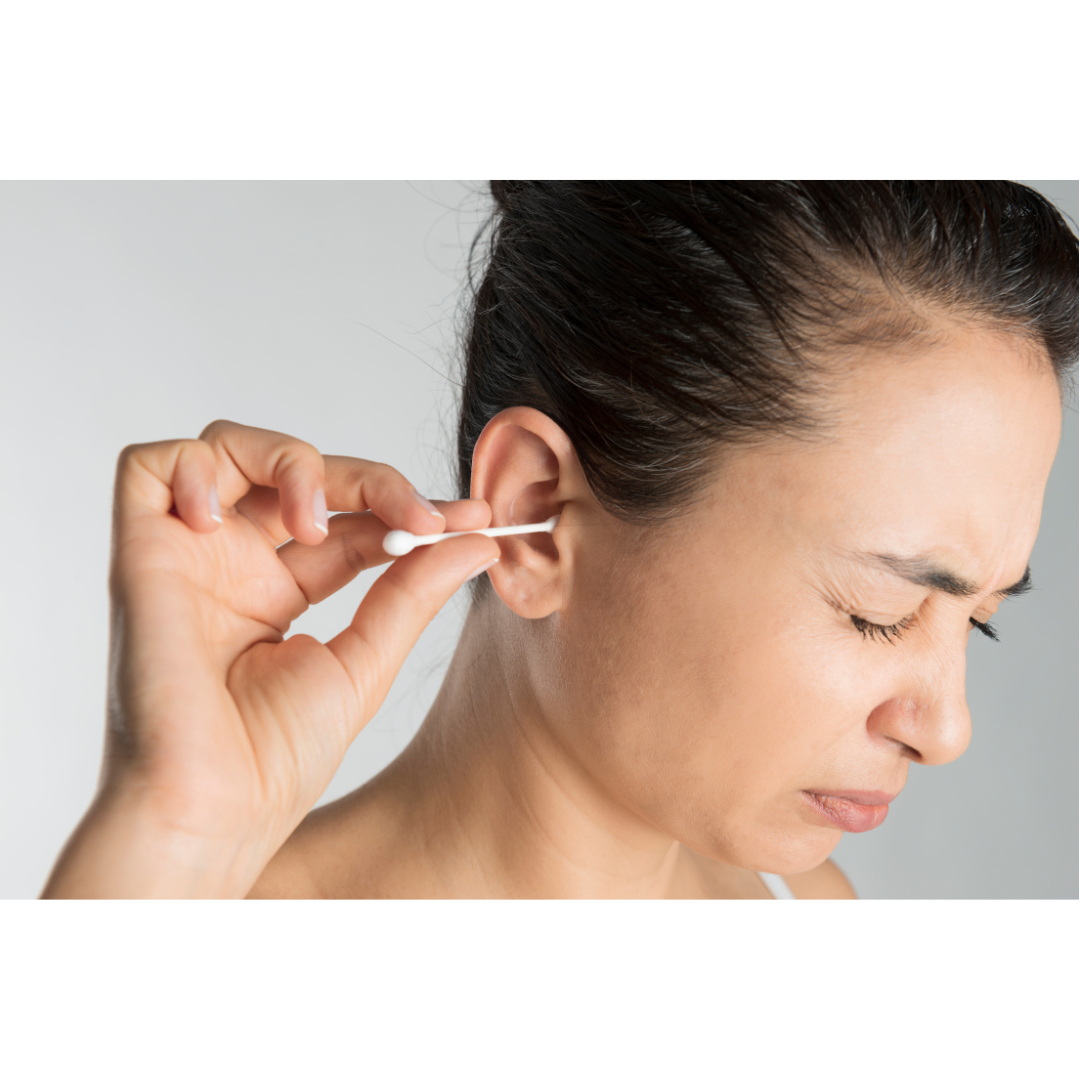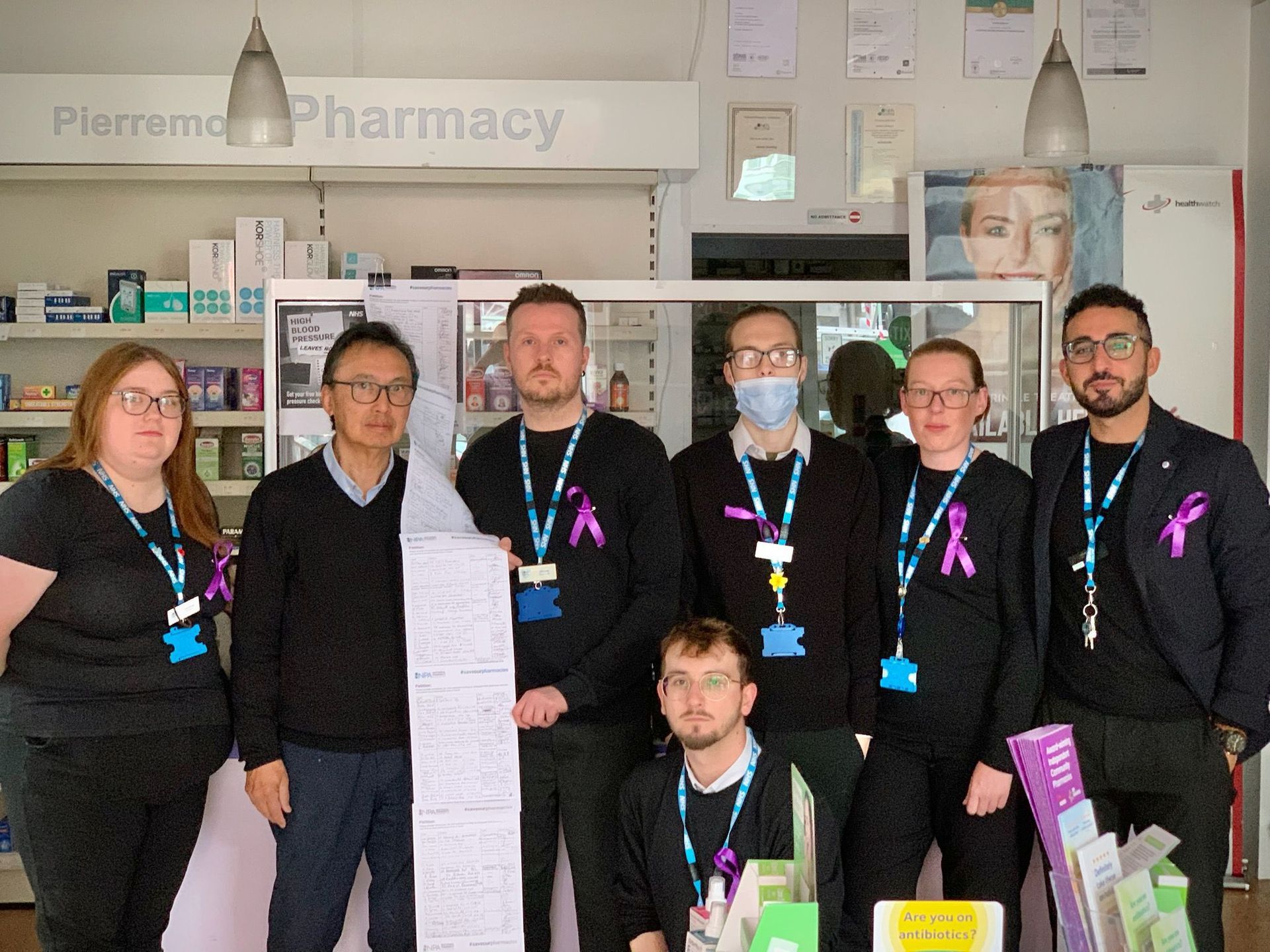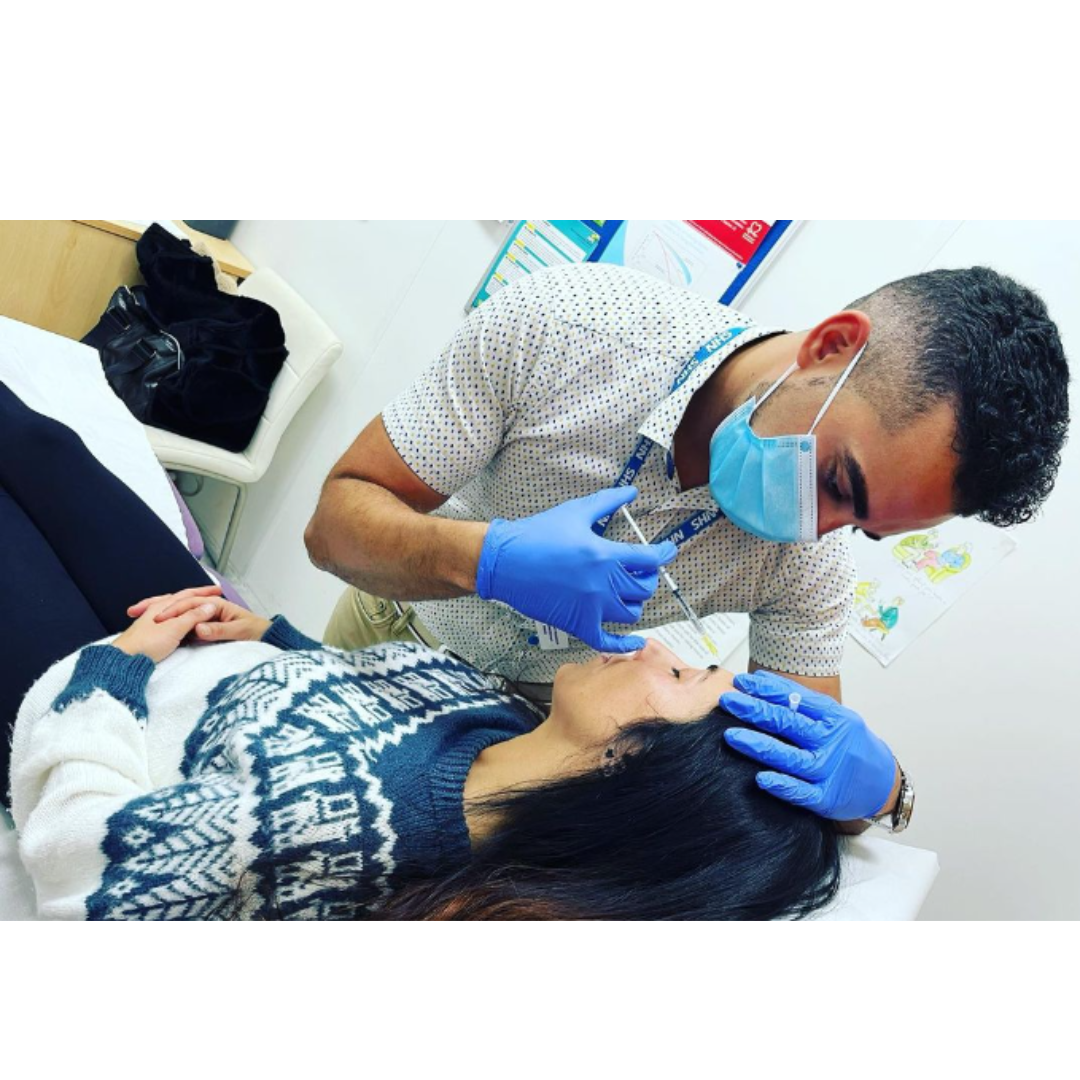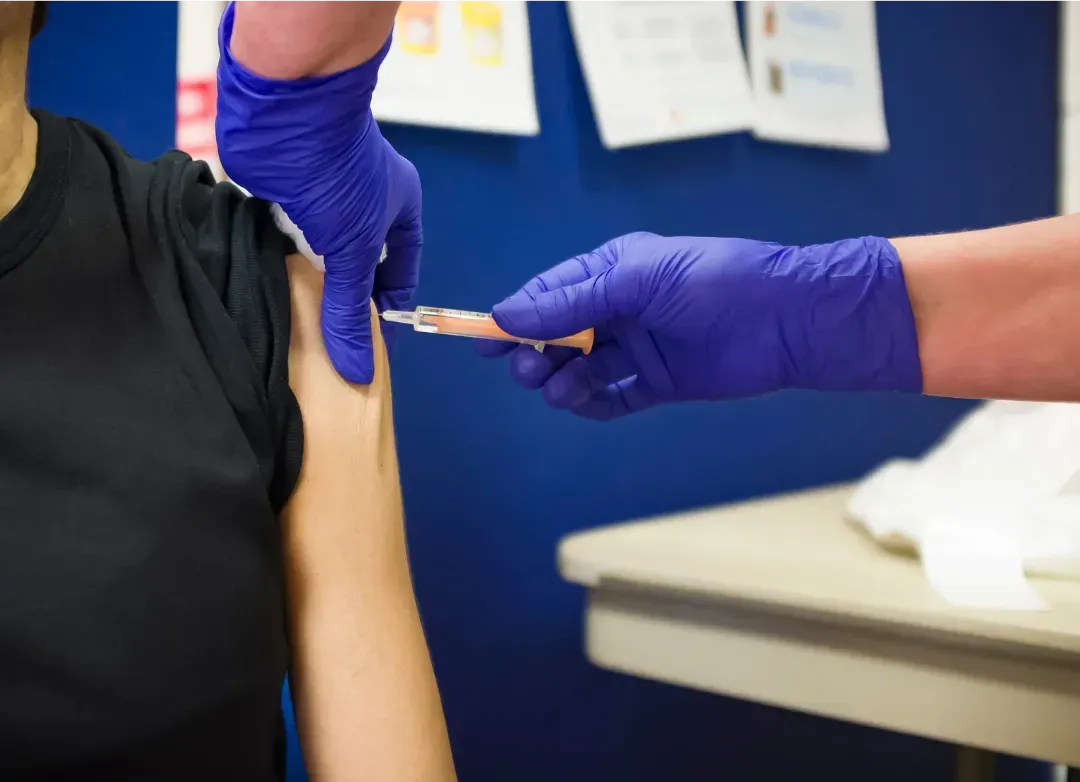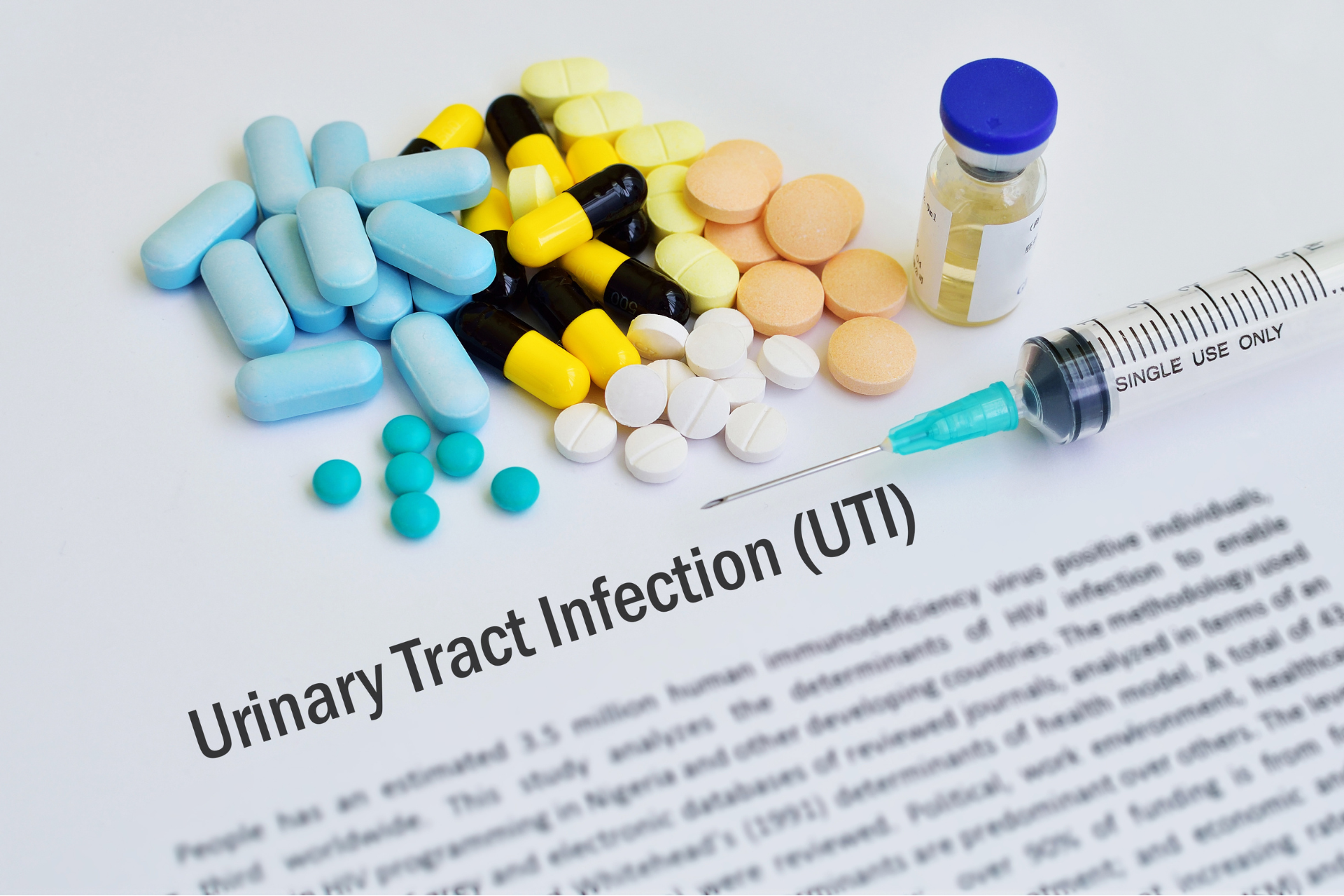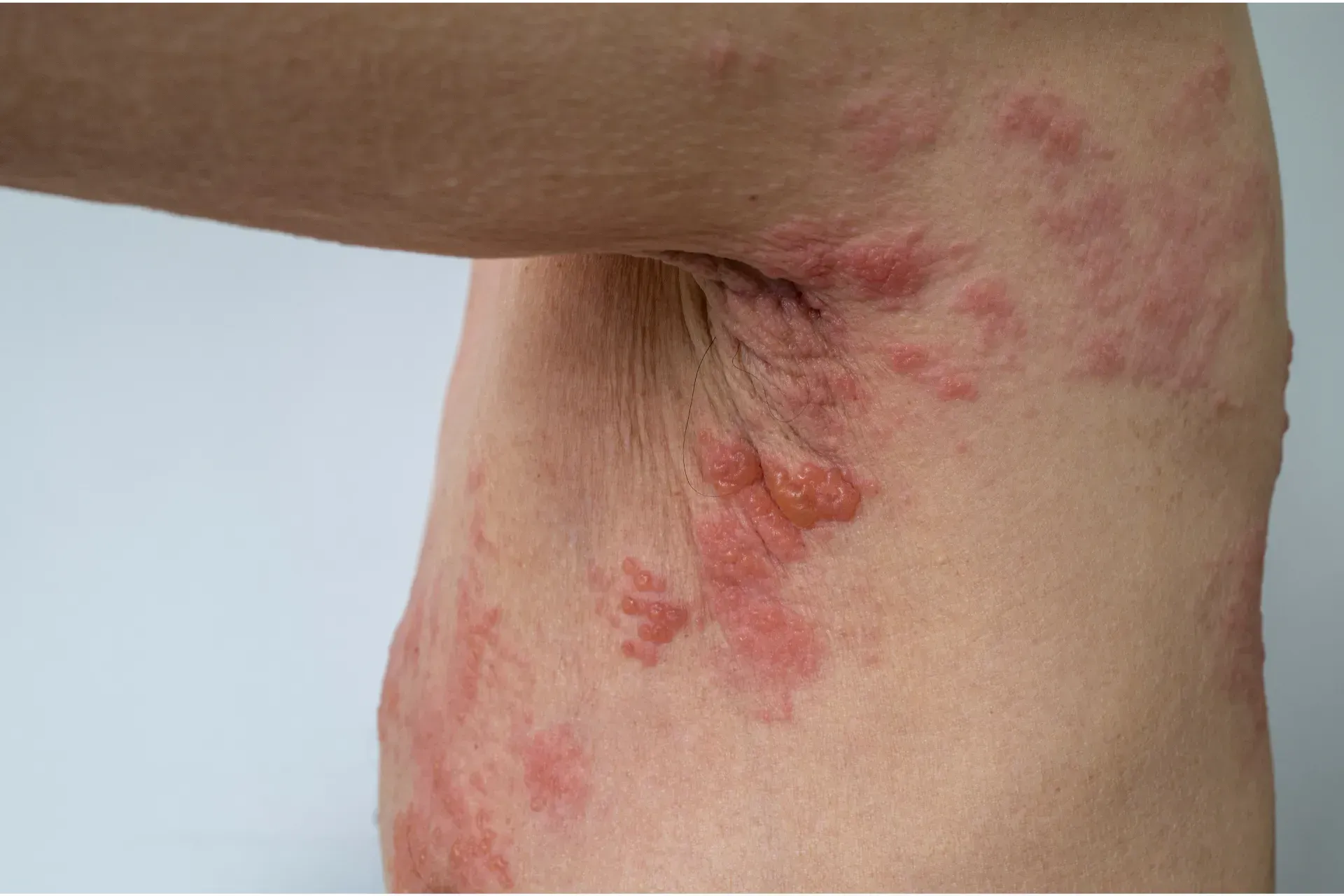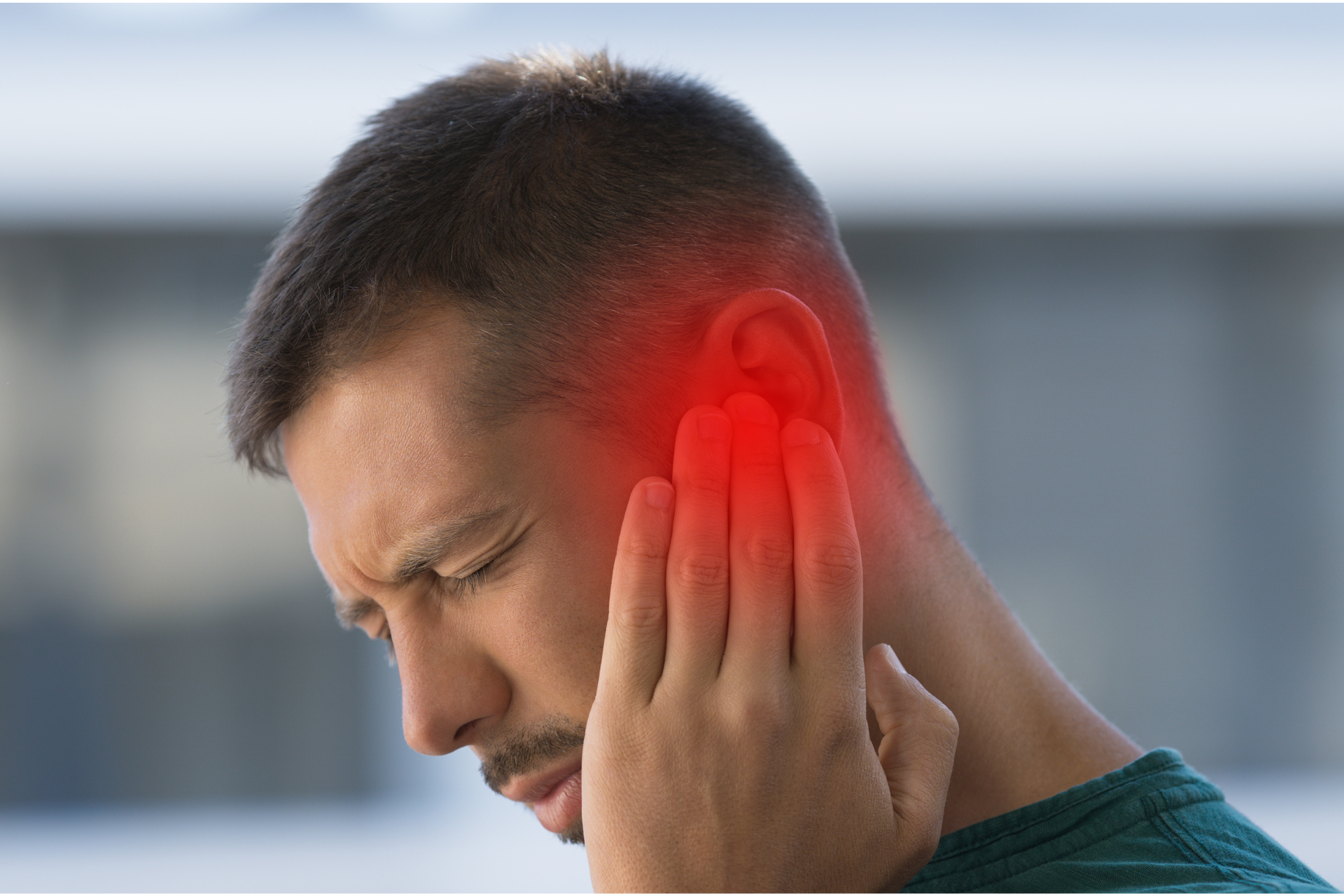Infected Insect Bites – Pharmacy First

Insect bites…not a problem! We agree that insect bites usually resolve with little or no medical help. But when infection results, they can actually be a big problem! Complications like Scabies or Lyme disease can cause major issues if left untreated, resulting from a simple infection that can otherwise be easily treated by a health professional.
Now, thanks to NHS Pharmacy First, it’s never been easier to be seen and treated for infected insect bites. Just ask the Pharmacist at Pierremont Pharmacy.
This blog will cover everything you need to know about infected insect bites, ranging from symptoms, treatment options, health complications and even risk factors for an infected insect bite.
Symptoms of an Infected Insect Bite?
Insect bites and infected insect bites can appear similar, but there are some key symptoms to look for when assessing whether an infection has occurred. Below we have listed some of the symptoms which generally present when an insect bite does become infected:
- Pus: (infected insect bites usually create pus in or around the site of the bite)
- Swollen glands
- Swelling and redness around the bite
- Increased pain levels around the bite
- Fever
- Chills
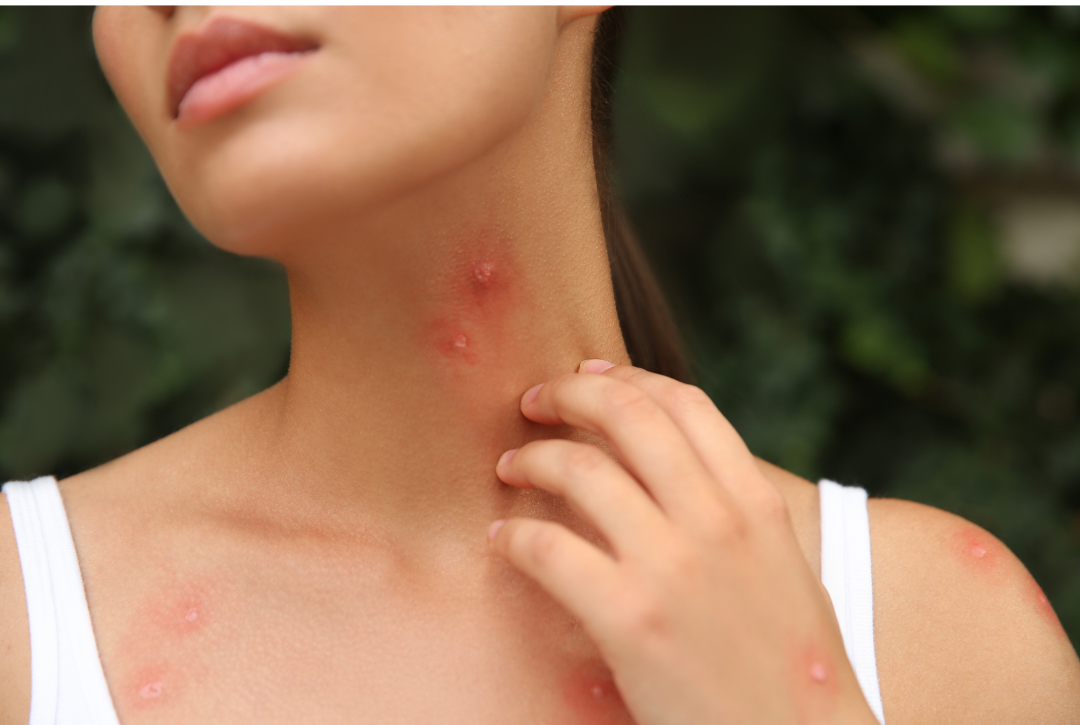
Here are some other symptoms you might experience with a regular (non-infected)
insect bite:
- Blistering
- Bruising
- Itchiness
- Rashes
- Swelling around the bite
- Allergic reactions
N.B. Some people can experience severe allergic (anaphylaxis) reactions to insect bites which cause a host of severe, potentially life-threatening, symptoms. If you have a severe reaction where you are struggling to breathe, feel confused or dizzy, or even faint call 999 immediately.
In milder cases, call 111 or book an appointment to speak with our pharmacist under the NHS Pharmacy First scheme.
Identifying an infected insect bite can be tough even when symptoms do occur, but we hope that our listing (above) of some of the key differences, can help you spot an infection early. It’s important to be vigilant about bites, particularly during summer when they are rife!
If you are concerned that an insect bite might have become infected then book an appointment under NHS Pharmacy First and speak to our pharmacist:
Health Complications of an Infected Insect Bite?

The list of health complications from an infected insect bite is fairly large due to the range of bacteria. This is unlike conditions like shingles which have a single (viral) cause.
Scabies: this results from mites which bite and then burrow under the skin laying their eggs. This is very uncomfortable, causing severe itchiness and may develop into a rash. Thankfully, this condition is rare in the UK. Typically, scabies thrives in hot and humid climates such as tropical regions. But if you observe symptoms of an infected insect bite or scabies book an appointment with your GP or our pharmacist via the free, NHS Pharmacy First service. Left untreated this can worsen creating worse problems such as sepsis (infection spreading via the bloodstream). Thankfully effective treatment for scabies is available as creams or oral medication.
Lyme disease is caused by an infected tick bite. A telltale symptom is a circular rash located around the bite. These rashes can take days to appear. In some cases, they take months before appearing. Some other symptoms you might become aware of include muscle/joint pain, high temperature, headaches, and excessive tiredness. If you notice symptoms that might be Lyme disease, contact your GP or call NHS 111.
If you are unsure whether you have an infected insect bite, just book an appointment to speak to our pharmacist under the free NHS Pharmacy First scheme. It will put your mind at rest:
Malaria is not common in the UK. But there is still a risk, especially if you have recently visited countries where the risk is high. Caution is highly advised as this condition can be fatal. Symptoms include:
- a high temperature, sweats and chills
- headaches and feeling confused
- feeling very tired and sleepy (especially in children)
- feeling and being sick, tummy pain and diarrhoea
- loss of appetite
- muscle pains
- yellow skin or whites of the eyes
- a sore throat, cough, and difficulty breathing
Symptoms of malaria can take up to 18 days before they appear. In some cases, this can be even longer. So if you think you may have contracted malaria, call 111 or book an urgent GP appointment. Additionally, try to contact those you have travelled with so they can seek support if they too have contracted malaria.
All of that said, no one wants to end up with malaria. We can help with preventative measures through our Travel Health Clinic. We will happily answer any health-related questions and provide the appropriate jabs and medication before you travel, to avoid this horrible condition:
What kind of treatment is available for Infected Insect Bites?

Determining an appropriate treatment for infected insect bites comes down to the nature of the infection and the individual concerned. In general, treatment options include oral antihistamines, steroid creams and/or painkillers to alleviate the painful symptoms of infection. These treatments should cover any symptoms regardless of the nature of the bite. In severe cases of infection, patients will be prescribed oral antibiotics, but this will only happen when the pharmacist deems appropriate. It's critically important not to overuse antibiotics or they stop working!
In cases of people with severe allergies, they may be prescribed an adrenaline pen by their GP. Adrenaline pens are used to halt the symptoms of anaphylactic shock. In mild cases where it is unclear if an infection is present, home remedies may be all you need. Home remedies could include washing the affected area with soap and water, applying a cold compress to the bite location and avoiding irritating the area (we know they can be very itchy but try not to scratch them!)
If simple treatments do not resolve the issue then of course, NHS Pharmacy First is here to help:
Who is at most risk of Infected Insect Bites?
Although some of us believe we are a more appealing target for insect bites, there’s no evidence for that. We are all at the more-or-less same risk of getting bitten, but we don’t all react the same way. Safeguards are always worth taking to minimise the risk. We can suggest a few simple measures to reduce the likelihood of getting bitten:
First, during the summer season, you could wear insect repellent sprays when going to a place with a higher risk of insect bites. If insect bites are a concern and it's cooler weather, you can always wear longer-sleeved clothing such as jeans and jackets. Less exposed skin means fewer insect bites. In specific situations such as proximity to fruit-bearing trees, ensure you clear away any fallen fruit as this can draw insects, so leading to a higher risk of getting bitten. At home, you should keep windows and doors closed to prevent any insects from getting inside. Finally, avoid close proximity to bodies of water (lakes, ponds etc) as they often attract quantities of mosquitos and horseflies.
Conclusion
In Summary: insect bites are very common. But so long as they don’t become infected, they are not a cause for real concern. That said, where they do become infected seek help through your GP, or the new, FREE NHS Pharmacy First service. It's best not to ignore the symptoms of an infection while they worsen. Accessing prompt but appropriate treatment represents a commonsense approach. Of course, insect bites happen all the time, but they are particularly prevalent in spring and summer. We are all at similar risk of getting bitten so please take appropriate preventive measures such as using an insect repellent. Home remedies can ease the symptoms of insect bites and if they do become infected, Pharmacy First is a free NHS now available from Pierremont Pharmacy.
“PHARMACY FIRST TO THE RESCUE!”
Book an appointment to speak to our pharmacist under the FREE, NHS Pharmacy First service:

